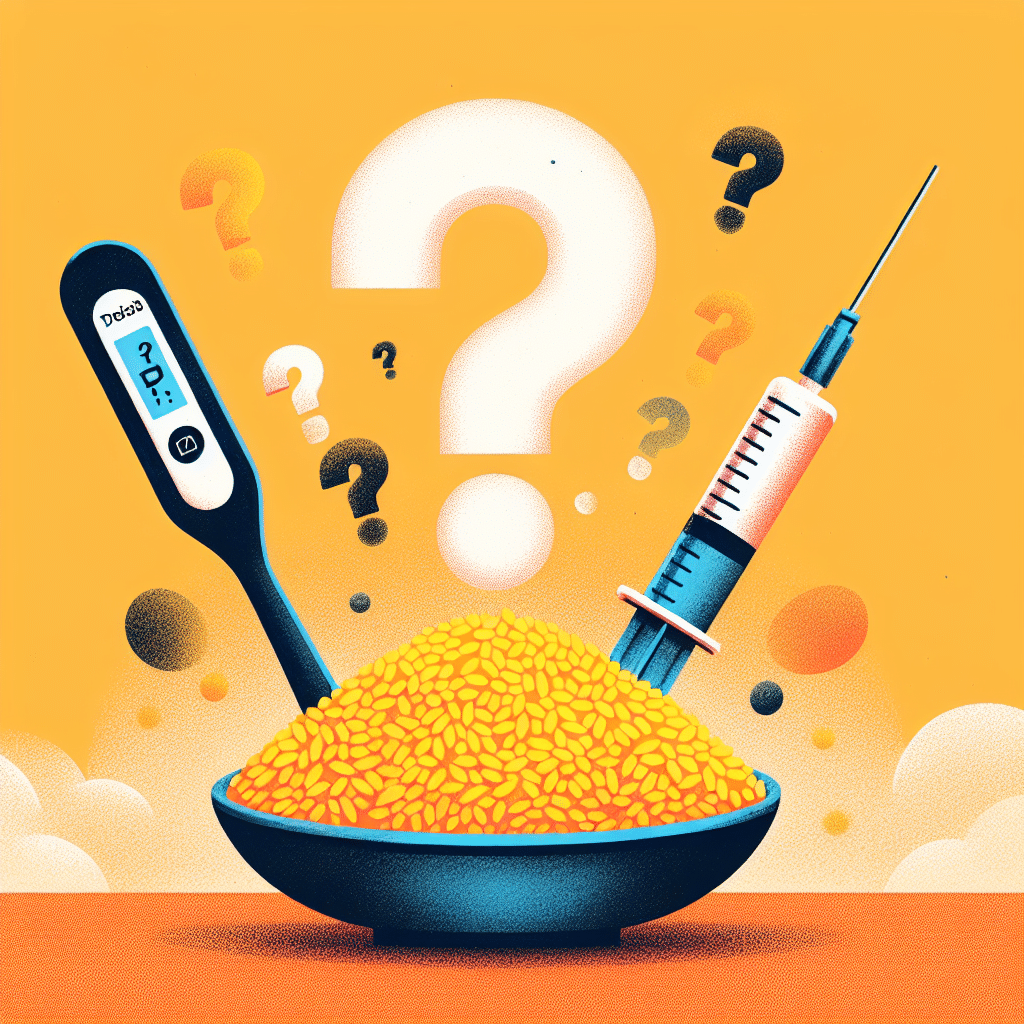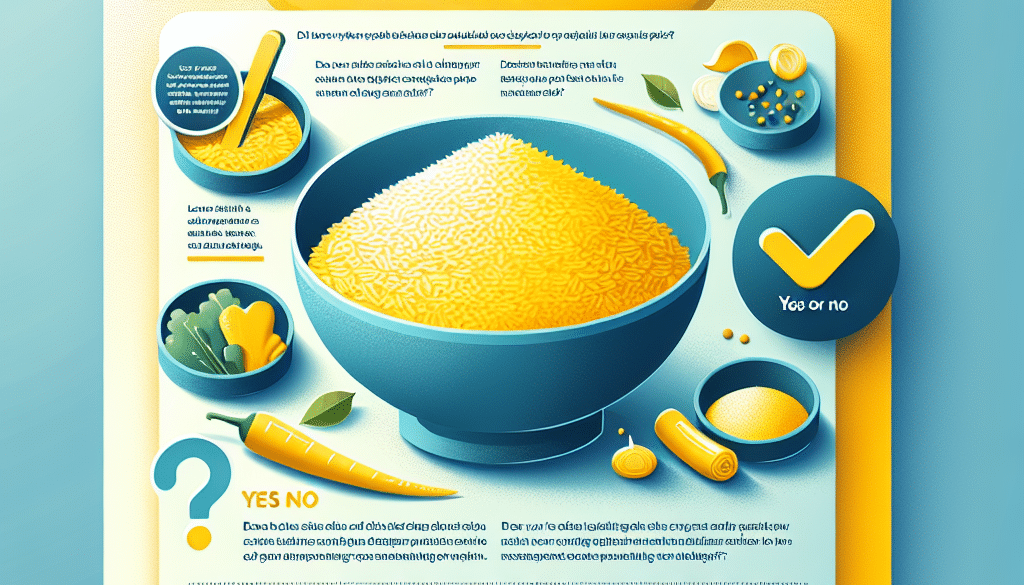Can Diabetics Eat Yellow Rice?
-
Table of Contents
- Can Diabetics Eat Yellow Rice? Understanding the Impact on Blood Sugar
- What is Yellow Rice?
- The Glycemic Index and Diabetes
- Yellow Rice and Glycemic Index
- Can Diabetics Eat Yellow Rice?
- Healthier Alternatives to Yellow Rice for Diabetics
- Case Studies and Statistics
- Conclusion: Balancing Yellow Rice in a Diabetic Diet
- Explore ETprotein’s Protein Products for Diabetics
Can Diabetics Eat Yellow Rice? Understanding the Impact on Blood Sugar

Diabetes is a chronic condition that affects the way the body processes blood sugar (glucose). For those managing diabetes, diet plays a crucial role in maintaining healthy blood glucose levels. One common dietary question among diabetics is whether they can include yellow rice in their meals. This article explores the nutritional aspects of yellow rice, its effects on blood sugar, and how it fits into a diabetic diet.
What is Yellow Rice?
Yellow rice is a colorful dish often made by cooking white rice with turmeric or saffron, which gives it a vibrant yellow hue. It may also contain additional ingredients such as vegetables, spices, and sometimes proteins. While it’s a staple in many cultures and can be a flavorful addition to meals, its impact on blood sugar is a concern for individuals with diabetes.
The Glycemic Index and Diabetes
The glycemic index (GI) is a ranking system for carbohydrates based on their immediate effect on blood glucose levels. Carbs with a high GI are quickly digested and absorbed, causing a rapid rise in blood sugar, while those with a low GI have a slower, more gradual impact. Managing blood sugar for diabetics often involves choosing foods with a lower GI.
Yellow Rice and Glycemic Index
White rice, the primary ingredient in yellow rice, typically has a high GI, which can lead to spikes in blood sugar levels. However, the GI of yellow rice can vary depending on the specific recipe and additional ingredients used. For example, cooking rice with fat or protein can lower its GI.
Can Diabetics Eat Yellow Rice?
Diabetics can eat yellow rice, but it should be done with caution and in moderation. The key is to understand how it affects your individual blood sugar levels and to balance it with other low-GI foods within your meal. Here are some considerations for including yellow rice in a diabetic diet:
- Portion Control: Limiting the serving size of yellow rice can help prevent large spikes in blood sugar.
- Whole Grain Alternatives: Opting for brown or wild rice, which have lower GI values, can be a healthier choice.
- Additional Ingredients: Including fiber-rich vegetables or lean proteins with yellow rice can help mitigate its impact on blood sugar.
- Monitoring Blood Sugar: Regularly checking blood glucose levels after eating yellow rice can provide insight into how your body responds to it.
Healthier Alternatives to Yellow Rice for Diabetics
For those looking to make healthier choices, consider these alternatives:
- Quinoa: A protein-rich seed with a lower GI.
- Cauliflower Rice: A low-carb, low-GI alternative made from grated cauliflower.
- Barley: A whole grain with a lower GI than white rice.
- Legumes: Beans and lentils are high in fiber and protein, with a lower GI.
Case Studies and Statistics
Research has shown that a diet high in low-GI foods can be beneficial for diabetics. A study published in the “American Journal of Clinical Nutrition” found that participants who followed a low-GI diet experienced better blood sugar control than those on a high-GI diet. Additionally, the “Diabetes Care” journal reported that whole grains and dietary fiber are associated with a reduced risk of developing type 2 diabetes.
Conclusion: Balancing Yellow Rice in a Diabetic Diet
In conclusion, while diabetics can eat yellow rice, it should be approached with mindfulness regarding portion sizes and the overall balance of the meal. By combining yellow rice with low-GI foods and monitoring blood sugar levels, diabetics can enjoy this dish without significantly disrupting their glucose control. As with any dietary changes, it’s essential to consult with a healthcare provider or a registered dietitian.
Explore ETprotein’s Protein Products for Diabetics
For diabetics looking to enhance their diet with high-quality protein sources, ETprotein offers a range of organic bulk vegan proteins that can be a valuable addition to a balanced diet. Their products, such as organic rice protein and pea protein, provide excellent alternatives to traditional protein sources and can be easily incorporated into diabetic-friendly recipes.
About ETprotein:
ETprotein, a reputable protein and L-(+)-Ergothioneine (EGT) Chinese factory manufacturer and supplier, is renowned for producing, stocking, exporting, and delivering the highest quality organic bulk vegan proteins and L-(+)-Ergothioneine. They include Organic rice protein, clear rice protein, pea protein, clear pea protein, watermelon seed protein, pumpkin seed protein, sunflower seed protein, mung bean protein, peanut protein, and L-(+)-Ergothioneine EGT Pharmaceutical grade, L-(+)-Ergothioneine EGT food grade, L-(+)-Ergothioneine EGT cosmetic grade, L-(+)-Ergothioneine EGT reference grade and L-(+)-Ergothioneine EGT standard. Their offerings, characterized by a neutral taste, non-GMO, allergen-free attributes, with L-(+)-Ergothioneine purity over 98%, 99%, cater to a diverse range of industries. They serve nutraceutical, pharmaceutical, cosmeceutical, veterinary, as well as food and beverage finished product distributors, traders, and manufacturers across Europe, USA, Canada, Australia, Thailand, Japan, Korea, Brazil, and Chile, among others.
ETprotein specialization includes exporting and delivering tailor-made protein powder and finished nutritional supplements. Their extensive product range covers sectors like Food and Beverage, Sports Nutrition, Weight Management, Dietary Supplements, Health and Wellness Products, and Infant Formula, ensuring comprehensive solutions to meet all your protein needs.
As a trusted company by leading global food and beverage brands and Fortune 500 companies, ETprotein reinforces China’s reputation in the global arena. For more information or to sample their products, please contact them and email sales(at)ETprotein.com today.












